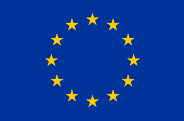
Safe non-food consumer Products in the EU and China
The European Single Market refers to the European Union (EU) as one territory without any internal borders. The Single Market has a big impact on the everyday lives of consumers in all EU Member States by providing greater access to goods and services as well as increased protections under EU consumer law.
EU consumer laws provide consumers with the following key rights:
The main EU Directives and Regulations can be summarised as follows:
One of the most important pieces of EU consumer legislation is a Directive on the Sale of Goods and Associated Guarantees. Under this Directive, a consumer has a minimum 2-year legal guarantee against faulty products, or products that do not look or work as advertised. These are known as a consumers’ statutory rights. The national law in some Member States may allow for longer periods. In Ireland, for example, the time limit is six years.
Consumers have legal rights in relation to faulty products, not just unsafe or dangerous products, and online purchases are also covered as a result of the Consumer Rights Directive. This Directive aims to ensure that consumers have the same minimum level of rights no matter where a trader is based in the EU. A distance contract is where the consumer buys a product or service online, over the phone, or by mail order. Consumers have additional rights including:
These are the key rights, however, there are others. The EU is continuing to look at how it can improve laws covering consumer sales and guarantees as well as providing consumers with additional rights regarding digital content and digital services. It’s important for sellers to keep up to date with any changes to the law.
As well as having these rights, there a number of ways that consumers can enforce their rights against a business if needed. Each country has its own legal system and consumers would have to pursue any legal claim there. The EU has, however, tried to simplify pursuing legal rights with the Alternative Dispute Resolution Directive. This is intended to be:
It’s important for all businesses to understand the approach taken to consumer protection in the EU. While market surveillance authorities can act in relation to dangerous and unsafe goods, individual consumers have their legal rights too. These rights extend beyond dangerous goods by also addressing faulty and misdescribed goods.
The EU has made it as easy as possible for consumers to exercise their rights. Although action will most likely be brought against the seller in the EU, that person is likely to pass their claim back to their supplier. EU importers may not be prepared to take the financial loss but seek compensation from the manufacturer instead. In addition to the financial consequences, reputations and trust in brands can also be damaged which can affect future sales.
Learn more about the EU review of consumer law
Learn more about the Consumer Rights Directive
Learn more about this Directive
Learn more about the Alternative Dispute Resolution Directive

This website was created and maintained with the financial support of the European Union. Its contents are the sole responsibility of SPEAC project and do not necessarily reflect the views of the European Union.